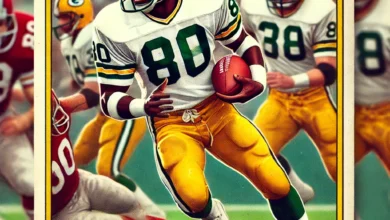Super GPS Pac-Man: A Visionary Concept in Gaming
Subheading: How a Cancelled Game Merged Real World Navigation with Virtual Mazes

Super GPS Pac-Man is a fascinating piece of gaming history that remains a testament to creativity and innovation. Initially conceived for the WonderSwan Color console by Bandai in 2001, this unreleased game was poised to merge the digital and physical worlds. By leveraging GPS technology, it aimed to transform real-world locations into interactive Pac-Man mazes. Unfortunately, due to the limited success of the WonderGate accessory and the cancellation of the GPS add-on, this ambitious project never saw the light of day. Yet, its ingenious concept continues to captivate enthusiasts and developers.
The Concept Behind Super GPS Pac-Man
Super GPS Pac-Man was envisioned as a groundbreaking integration of real-world navigation and gaming. Using the WonderGate GPS peripheral, players’ physical locations would serve as the game’s dynamic maze. Streets would become Pac-Man’s tunnels, and moving vehicles would take on the role of the infamous ghosts. This innovative concept was far ahead of its time, offering an interactive experience that bridged reality and virtual entertainment.
The WonderSwan Color and WonderGate
The WonderSwan Color, a handheld console developed by Bandai, was known for its compact design and affordability. To expand its functionality, Bandai introduced the WonderGate accessory, which allowed the device to connect to the internet via the DoCoMo mobile network. This connectivity opened the door for ideas like Super GPS Pac-Man, where real-time data from GPS signals could transform gameplay into an immersive experience.
However, the WonderGate and its GPS functionality faced limitations. The accessory struggled to gain traction in the market due to high costs and limited compatibility. As a result, its potential remained largely untapped, and games like Super GPS Pac-Man were shelved before completion.
Why Super GPS Pac-Man Was Cancelled
While the concept was visionary, several factors contributed to the game’s cancellation:
Technological Limitations
The WonderGate’s GPS technology was nascent and had limited accuracy, making it challenging to deliver a seamless gameplay experience.
Market Constraints
The WonderSwan Color and its accessories were not commercially successful outside Japan. This limited user base reduced the viability of investing in ambitious projects like Super GPS Pac-Man.
Cost Barriers
The high cost of the WonderGate peripheral deterred many users, which further hindered the game’s development.
Logistical Challenges
Designing a game that dynamically adapted to players’ real-world environments posed significant programming and design hurdles at the time.
The Legacy of Super GPS Pac-Man
Despite its cancellation, Super GPS Pac-Man’s core idea inspired future innovations in gaming. The concept of merging physical spaces with virtual gameplay has since been realized in successful titles like Pokémon GO. These games owe their lineage to pioneers like Super GPS Pac-Man, which pushed the boundaries of what gaming could achieve.
The project also highlights how the gaming industry often experiments with cutting-edge technology. Although the WonderSwan Color could not sustain the ambitious vision of Super GPS Pac-Man, the idea remained a benchmark for integrating real-world elements into virtual environments.
The Role of GPS in Modern Gaming
Today, GPS-based games are a thriving genre, with millions of players engaging in titles that blend exploration and gameplay. Super GPS Pac-Man’s conceptual framework—using real-world navigation as a gameplay mechanic—is evident in:
Augmented Reality Games
Games like Ingress and Harry Potter: Wizards Unite have successfully implemented real-world navigation.
Fitness Integration
Apps like Zombies, Run! encourage physical activity by gamifying real-world running routes.
Geo-location Puzzles
Titles that use GPS data to create location-based challenges owe their existence to early concepts like Super GPS Pac-Man.
What Could Have Been: A Hypothetical Gameplay Experience
Imagine walking through your city, with your GPS device converting familiar streets into a labyrinth. As you navigate, you collect virtual dots and power pellets while avoiding “ghosts” represented by moving vehicles or pedestrians. The game could have included:
Customizable Mazes
Adaptable levels based on urban layouts.
Multiplayer Features
Players competing or collaborating in shared real-world spaces.
Dynamic Challenges
Weather and time influencing gameplay elements like visibility or ghost behavior.
Conclusion
Super GPS Pac-Man was an ambitious project that sought to redefine gaming by blending the real and virtual worlds. Though it never reached the market, its innovative spirit laid the groundwork for future advancements in GPS-based gaming. As technology continues to evolve, the legacy of Super GPS Pac-Man serves as a reminder of the bold ideas that drive the gaming industry forward.



